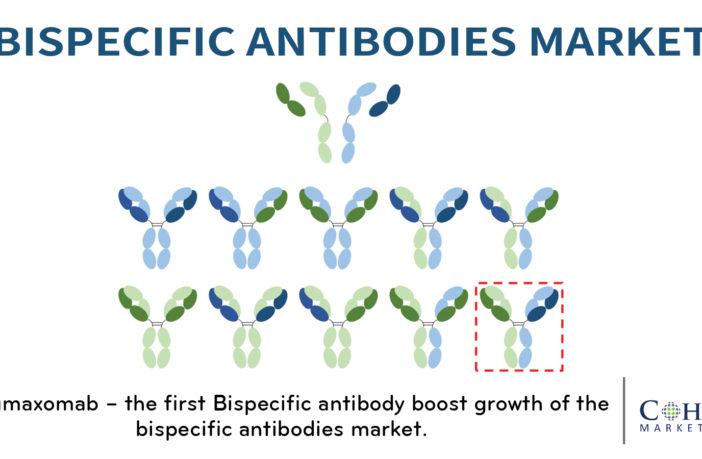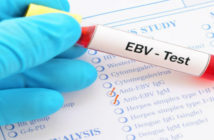Bispecific Antibodies Market Overview
Bispecific antibody (BsAb) is an artificial protein that is composed of fragments of two different monoclonal antibodies and has ability to bind to two different types of antigen. Cancer immunotherapy is the most widely explored application of bispecific antibody. Lung, breast and colon cancer are the wider applications of BsAb. Bispecific antibody simultaneously binds to a cytotoxic cell and target tumor cell and destroys it. Bispecific antibodies are emerging a technologically advanced solution for dual targeting strategies within same molecule.
Request a sample copy of Bispecific Antibodies Market report: https://www.coherentmarketinsights.com/insight/request-sample/19
Due to its dual specificity, bispecific antibody can aid in redirecting T cells to tumor cells, blocking two different signaling pathways simultaneously, dual targeting of different disease mediators, and delivering payloads to targeted sites. Catumaxomab and blinatumomab are the two U.S. FDA approved bispecific antibody products, which would fuel growth of the bispecific antibodies market. Bispecific antibodies can be divided into three main classes namely, fragment, symmetric, and asymmetric antibodies. Fragment bispecific antibodies such as a nanobody DART and BiTE are currently undergoing clinical trials. Likewise, tetravalent BsAb - DVD and DAF symmetric antibodies are under research. Companies such as Sanofi S.A., Merck & Co., Inc. and Genentech, Inc. are conducting research on symmetric bispecific antibodies. BEAT, duobody, and crossmab are examples of asymmetric bispecific antibodies, which are currently being researched by Glenmark Pharmaceuticals, Eli Lilly and Company, and Genmab A/S.
Catumaxomab – the first Bispecific antibody boost growth of the bispecific antibodies market
As of 2015, over 60 different BsAb formats have been developed, with some making their way into the clinical trials. Bispecific antibodies market growth is increasing due to the limitation of monoclonal antibodies in drug resistance and failure to respond in treatment. Hence, the bispecific antibodies market is projected to gain significant growth traction in the near future.
Catumaxomab is a rat – mouse hybrid monoclonal bispecific trifunctional antibody used to treat malignant ascites. It was developed by Fresenius Biotech and Trion Pharma. Catumaxomab was approved in Europe in 2009 and is undergoing clinical trials in the U.S. Sold under the brand name Removab, Catumaxomab is administered to patients with EpCAM-poisitve carcinoma.
North America and Europe are major regions for Bispecific antibodies market
In Europe and North America, incidence of diseases such as lung cancer, cervical cancer, breast cancer, and prostate cancer is increasing, with the regions accounting for the highest incidence rate for these diseases worldwide. Moreover, with these regions being home to major players, these are the largest bispecific antibodies market. Supportive government initiatives are further fueling growth of bispecific antibody treatment markets in North America and Europe. Increasing healthcare access and awareness in developing regions such as Asia Pacific, Latin America, and Middle East are projected to propel demand for BsAb owing to fuel growth of the bispecific antibodies market in the near future.
To get detailed table of content (ToC), please click
Increasing investments to harness the potential of highly effective BsAb Drug Therapy
Various pharmaceutical companies are actively involved in development and manufacture of bispecific antibodies. MedImmune, LLC and Abpro, collaborated in December 2016 to develop novel bispecific antibody, Ang2-VEGF, which targets angiopoietin-2 and vascular endothelial growth factor. Government funding is projected to further encourage research and development in this field.
Key players involved in the Bispecific antibodies market include
Some of the key players in Bispecific antibodies market are Amgen, Inc., Bayer AG, Dow Pharmaceutical Solutions, ImmunGene, Inc., Immunocore Limited, Merck & Co., Inc., Novartis AG, Pfizer, Inc., and F. Hoffmann-La Roche AG.




